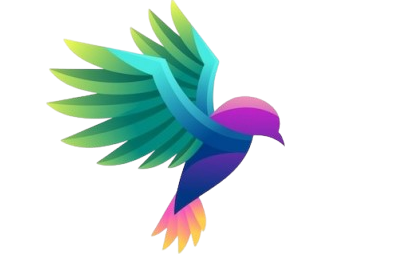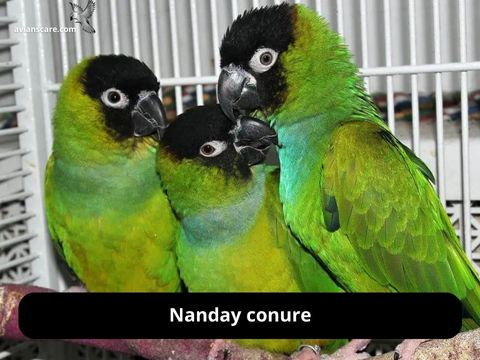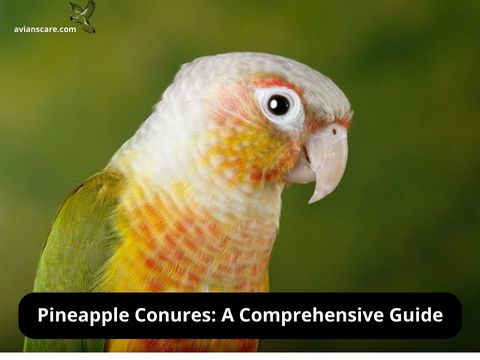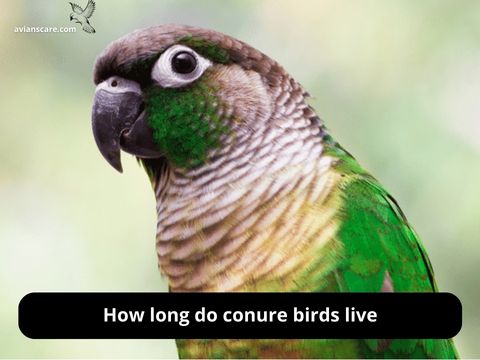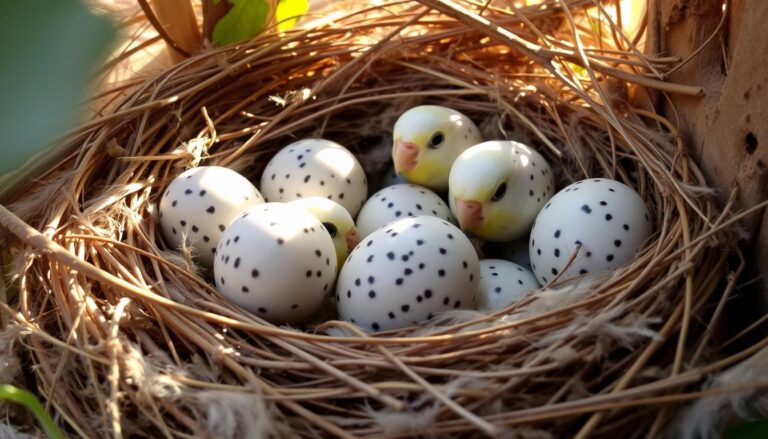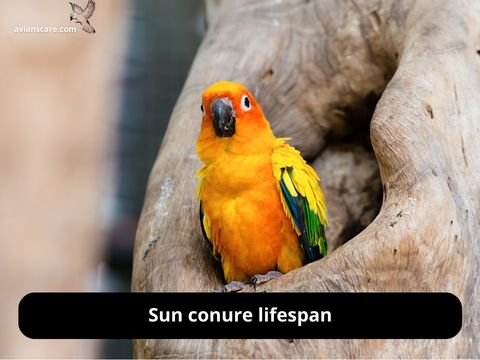Can green cheek conure talk ?
Green cheek conures are popular pets known for their lively personalities and loving nature. But can they really talk like humans? Many people wonder about this. In this guide, we’ll look into how these birds communicate, their ability to speak, and how to teach them to talk.
Key Takeaways
- Green cheek conures can make sounds and communicate, but not all can speak human words.
- With the right training and care, they can learn to say a few words or phrases.
- Starting training early is important for their speech development.
- Things like the bird’s personality, health, and environment can also impact their ability to speak.
- Using positive methods and being patient are essential to teach your green cheek conure to talk.
Understanding Green Cheek Conure’s Natural Vocalization
Green cheek conures are loved for their lively personalities and ability to make sounds. To really get how good they are at talking, we need to know how they sound in the wild.
Wild Communication Patterns
In the wild, green cheek conures use many sounds to talk to each other. They chirp, whistle, and trill to stay in touch, show excitement, and warn of dangers. These sounds help them live and interact with each other.
Typical Sounds and Calls
Green cheek conures also make sweet sounds when they’re in cages. They make soft calls, chatter, and even try to sound like their owners. Knowing these sounds helps us see how good they are at green cheek conure parrot talking.
Vocal Range Capabilities
Even though they can’t talk like some parrots, like the talking parrot African grey, green cheek conures can still make a lot of sounds. With the right training and care, they can even say simple words. This makes their owners very happy.
“Green cheek conures are remarkable birds, with a natural vocal range that showcases their intelligence and adaptability. Understanding their wild communication patterns and typical sounds can help us better appreciate their potential as talking parrot companions.”
Can Green Cheek Conure Talk: The Truth About Their Speaking Potential
When we ask if a green cheek conure can talk, the answer is not always simple. These parrots can mimic human speech, but how well they can talk depends on many things.
The green cheek conure can they talk potential is shaped by the bird’s personality, training, and health. Some green cheeks learn a few words, while others stay quiet. It’s important to know what to expect from this species when it comes to talking.
“Green cheek conures are intelligent and curious birds, but their ability to talk is not as innate as some other parrot species, like the African grey. It requires patience, consistency, and the right training methods to help them reach their full speaking potential.”
However, with the right approach and dedication, owners can teach their green cheek conure to talk. The next sections will look at what affects a green cheek’s ability to speak and offer tips on training them.
Comparing Speech Abilities with Other Parrot Species
Green cheek conures are often compared to African greys when it comes to talking. Both birds can learn to mimic words, but they differ in their abilities.
Green Cheeks vs. African Greys
African greys are known for their amazing talking skills. They can mimic many words and phrases clearly. Green cheek conures, however, have a smaller vocabulary and may not speak as clearly.
Speech Clarity Differences
African greys are praised for their clear speech. They can articulate words well, making them easy to understand. Green cheek conures may sound a bit muffled, but they can still learn to make different sounds.
Vocabulary Size Expectations
African greys can learn hundreds of words. Green cheek conures usually know fewer words, but with training, they can still learn a lot. They can develop a large vocabulary with the right care and training.
Even though green cheek conures may not talk as much as African greys, they are very smart and social. They can learn to communicate with people in their own way. With patience and positive training, green cheek conures can become great talkers.
Best Age to Start Training Your Green Cheek Conure
Timing is everything when teaching your green cheek conure to talk. The best time to start is between 3-6 months old. This is when they are most open to learning new sounds and behaviors.
At this age, they are learning their natural calls and trying out different sounds. Starting training early can help them use their vocal talents well.
It’s also important to socialize them early. Chicks that are handled and talked to from a young age are more likely to mimic words. So, start training as soon as you can.
| Developmental Stage | Optimal Training Window |
|---|---|
| 0-3 months | Focus on socialization and bonding |
| 3-6 months | Begin speech training |
| 6 months+ | Continue training and reinforce new words |
Every green cheek conure learns at their own pace. Be patient, consistent, and positive. With the right approach, your bird can learn to talk well.

Essential Training Methods for Teaching Your Conure to Speak
As a proud owner of a green cheek conure, you might want to teach it to talk. These birds might not be the best talkers, but with the right training, they can learn. Let’s look at the key methods to help your conure speak.
Creating the Right Learning Environment
It’s important to give your green cheek conure a quiet and engaging space for training. Place their cage in a quiet area of your home. This helps avoid distractions. Add toys, perches, and activities to keep them interested and active.
Daily Practice Routines
Consistency is key in teaching a green cheek conure to talk. Set aside time each day for training, even if it’s just a few minutes. Spend quality time with your conure, repeating words and phrases in a clear voice. Be patient, as it may take time for them to start mimicking sounds.
Positive Reinforcement Techniques
Positive reinforcement is the best way to encourage your conure’s talking. Give them treats or play with them when they make progress. This builds their confidence and motivates them to keep learning.
By creating a good learning environment, practicing regularly, and using positive reinforcement, you can start an exciting journey. Remember, every bird is different, so be patient and celebrate their progress.
Common Words and Phrases Green Cheeks Can Learn
Green cheek conures are smart and love to talk. They might not speak as well as big parrots like African Greys. But with effort, they can learn many words and phrases.
These birds often say their name, like “Polly” or “Buddy.” They also learn simple greetings, like “hello” and “hi.”
Green cheek conures can pick up short phrases. They might say “Want a treat?” or “Time for bed.” They also like to mimic sounds, like the microwave or laughter.
| Common Words | Common Phrases |
|---|---|
| Name Hello Hi Good morning Bye | Want a treat? Time for bed Where’s my food? I love you Come here |
The words and phrases a green cheek conure learns vary. It depends on the bird’s personality and the training. With patience and consistent effort, they can become great talkers and friends.

“Green cheek conures are incredibly intelligent and have a natural inclination for vocalization. With the right training, they can learn to mimic a surprising number of words and phrases.”
Factors Affecting Your Green Cheek’s Speaking Ability
When it comes to green cheek conure can they talk, many factors can affect a bird’s ability to speak. These parrots can learn many words and phrases. But, their speaking skills can be influenced by several important elements.
Environmental Influences
The environment where a green cheek conure lives is crucial for their speaking skills. Noise levels, daily routines, and the presence of other birds or humans matter. A calm, interactive space can help a conure speak better.
Individual Bird Personality
Each green cheek conure is unique, just like humans. Some are more outgoing and eager to mimic sounds. Others are more reserved. Knowing your conure’s personality can help you train them better.
Health and Well-being Impact
A green cheek conure‘s health and well-being also affect their ability to talk. Stress, illness, or pain can stop a bird from speaking. Keeping your conure healthy and happy is key for their speaking skills.
Understanding these factors can help you create the best environment for your green cheek conure. Tailoring your training can unlock their full speaking potential.
Signs Your Green Cheek Conure Is Ready to Talk
Are you excited to hear your green cheek conure say its first words? These smart birds show signs when they’re ready to learn to talk. By noticing these signs, you can start speech training at the right time.
One early sign is when your conure starts chattering more. As they grow, they make more sounds like chirping and whistling. Listen for new sounds they try out. These might be the start of their speech.
- Frequent chirping and whistling
- Attempts to mimic familiar sounds
- Increased vocal experimentation
Another sign is when your conure wants to talk back to you. As they bond with you, they’ll try to “talk” by making sounds. This is a clear sign they’re ready to learn human words.
| Behavioral Cue | Indication |
|---|---|
| Frequent Chirping and Whistling | Increased Vocal Experimentation |
| Attempts to Mimic Familiar Sounds | Interest in Vocalization and Speech |
| Responsive Vocalizations to Human Speech | Readiness for Speech Training |
By paying attention to these signs, you can start green cheek conure talking videos training at the best time. With patience and positive encouragement, you’ll soon have full conversations with your conure.
Troubleshooting Common Speech Training Challenges
Training your Green Cheek Conure to talk can be rewarding, but it comes with challenges. One common issue is when your bird’s response is not consistent. Some days, they might want to mimic sounds, while others they seem disinterested. Always remember, patience and persistence are crucial in teaching your Green Cheek Conure to speak.
Another problem is when your bird only picks up on certain words or phrases. This can be frustrating. But, keep exposing your Conure to different sounds and expressions. Also, make sure to reward them for what they do learn. A positive and supportive environment can help a lot.
Lastly, some Green Cheek Conures might develop behaviors like biting or screaming. These behaviors can make speech training harder. If you see any concerning behaviors, get help from an avian vet or an animal behaviorist. Fixing these issues can make your bird’s learning environment better.
FAQ
Can green cheek conures talk?
Green cheek conures can mimic and make various sounds, including human speech. They might not talk as much as African Greys. But, with the right training, they can learn to say simple words and phrases.
At what age can a green cheek conure start talking?
It’s best to start training a green cheek conure to talk between 6 months to 1 year old. This is when they are most open to learning. Some may start talking as early as 3-4 months with enough human interaction.
How do I train my green cheek conure to talk?
To teach a green cheek conure to talk, create a fun and positive learning space. Use daily practice and positive rewards. Start early, be patient, and adjust your training to fit your bird’s personality.
What are some common words and phrases green cheek conures can learn?
Green cheek conures can learn many words and phrases, like their name and “hello.” They can also learn simple commands. How much they learn depends on their natural ability, consistent training, and your dedication.
How do environmental factors affect a green cheek conure’s ability to talk?
The environment greatly affects a green cheek conure’s talking skills. Things like background noise and how much they interact with humans matter. So does being around other birds.
What are some signs that my green cheek conure is ready to start talking?
Look for signs like more vocalizations and paying attention to human speech. If your bird starts to mimic sounds or words, it’s time to start training. Watching your bird’s behavior and sounds can help you know when to begin.
